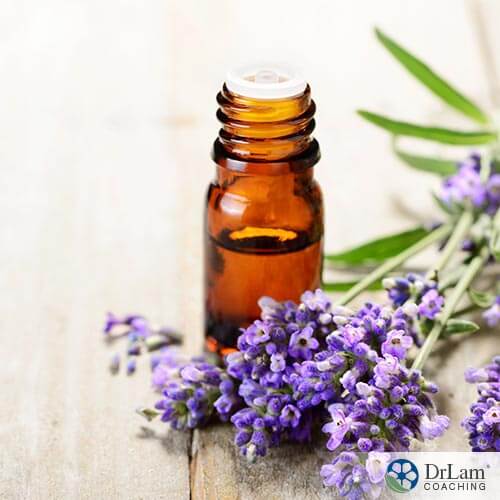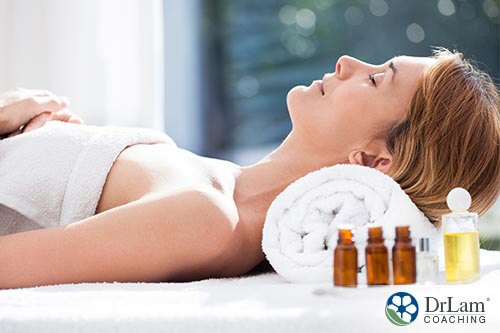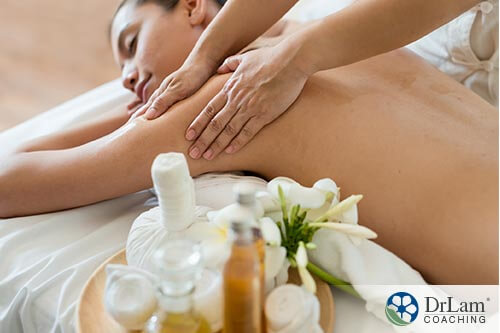 Facing the prospect of surgery can be daunting at the best of times. The severity of the procedure and possible outcomes may determine the extent of your anxiety. Fortunately, in many cases, we do have a little control over the period leading up to the surgery as well as what happens afterward. We tend to go through a gamut of physical and emotional changes during these times, mainly owing to our worry about the outcome and the pain that may accompany the period before and after the procedure. While many still think essential oils for surgery are just a fad, research has found that these oils may have amazing benefits for those preparing to face surgery. Some of these could be used before, after, and even, during the procedure.
Facing the prospect of surgery can be daunting at the best of times. The severity of the procedure and possible outcomes may determine the extent of your anxiety. Fortunately, in many cases, we do have a little control over the period leading up to the surgery as well as what happens afterward. We tend to go through a gamut of physical and emotional changes during these times, mainly owing to our worry about the outcome and the pain that may accompany the period before and after the procedure. While many still think essential oils for surgery are just a fad, research has found that these oils may have amazing benefits for those preparing to face surgery. Some of these could be used before, after, and even, during the procedure.
There is a wide variety of essential oils that are suitable prior to a surgery. Others are great for the post-op period and some may be better-suited to helping with the healing process. Essential oils for surgery support your body’s ability to not only fight infection but to effectively heal.
Essential oils can be extracted from fruits, seeds, and flowers. They are extremely concentrated and can be massaged into your skin, diffused into the air and breathed in, or added to lotions or bath water. Essential oils for surgery may help soothe your senses, support healing, and prepare your body for stress—whether it is caused by daily life or a daunting medical procedure. There is no difference between essential oils for surgery and other essential oils, per se, except in their particular properties and uses.
When inhaled, essential oils target the smell receptors found in your nose, triggering certain responses that are passed to the brain via your nervous system to calm you, for example. On the other hand, essential oils absorbed by the skin may have antibacterial or antifungal properties that help combat infection.
Please note that while some essential oils are safe to drink, not all of them are. Therefore, it’s better to err on the side of caution and do not ingest essential oils unless you have been advised to do so by a qualified health care practitioner or someone well-versed in the use of essential oils.
There are a variety of essential oils for surgery uses including as a means of preparation, as part of the healing process afterward, or to supplement your after-care.
If your surgery is scheduled but still some time away, now is the best time to start preparing your body for the event. Your main focus should be on making fortifying your body to withstand the surgery and effectively heal after the event. This means you’ll need to follow a healthy diet, make sure you’re getting enough sleep, and doing an adequate amount of exercise. The better you can prepare your body for the event, the less chance you’ll have of developing an infection and you’ll also minimize your recovery time afterward. Essential oils for surgery can act as tonics that support your immune system allowing your body to manage the stress caused by undergoing any changes or trauma due to surgery.
Oils you could consider utilizing approximately one month before undergoing surgery include tonic oils high in monoterpenes, monoterpenols, sesquiterpenes, and sesquiterpenols—which have decongestant, antiviral, antiseptic, antibacterial, anti-inflammatory, anticancer, antioxidant, and anti-atherosclerotic properties.
 Essential oils for surgery that can boost your immune system and prepare it for potential exposure to pathogens during surgery include Juniperus virginiana (Virginia cedarwood), Matricaria recutita (German chamomile), Vetiveria zizanoides (vetiver), Achillea millefoleum (yarrow), Pogostemon cablin (patchouli), Daucus Carota (carrot seed), and Salvia sclarea (clary sage). None of these essential oils harm the skin and are therefore safe to use as massage oils, body lotions, and deodorants during the period leading up to your surgery. They can also all be used in diffusers, with the exception of vetiver because it has a very sticky consistency and is therefore not suitable for this purpose.
Essential oils for surgery that can boost your immune system and prepare it for potential exposure to pathogens during surgery include Juniperus virginiana (Virginia cedarwood), Matricaria recutita (German chamomile), Vetiveria zizanoides (vetiver), Achillea millefoleum (yarrow), Pogostemon cablin (patchouli), Daucus Carota (carrot seed), and Salvia sclarea (clary sage). None of these essential oils harm the skin and are therefore safe to use as massage oils, body lotions, and deodorants during the period leading up to your surgery. They can also all be used in diffusers, with the exception of vetiver because it has a very sticky consistency and is therefore not suitable for this purpose.
Please remember, it is recommended that, where possible, that you consult with your anesthesiologist well before undergoing surgery to let them know about any supplements and essential oils you’re using or planning to use. Certain essential oils and supplements could lead to complications, for example, preventing your blood from clotting or interfering with medications you’re required to take during or after the surgery. Unfortunately, most people only have the opportunity to see their anesthesiologist a few minutes prior to the surgery, which means you’ll need to have a list of any supplements and medications you’re currently using ready to bring with you to your preoperative visit. Certain essential oils can interact with the drugs used in surgery, so you’ll need to ensure your anesthesiologist is made aware of everything you’re using. Ideally, you should discontinue using any essential oils, internally or topically, at least two weeks before surgery.
Surgery of any kind can cause both physical and psychological trauma, usually accompanied by pain and stress. This can result is your adrenal glands producing copious amounts of cortisol in an effort to help your body deal with the added stress while at the same time, fighting off possible infections and inflammation. You may also have bruises and scarring should be another consideration. Essential oils may be able to address some of these concerns.
 Researchers have found that aromatherapy can aid with pain management after surgery. Positive results have also been shown in women who inhaled lavender, frankincense, and rose essential oils while giving birth. These scents were found to help combat fear and anxiety while at the same time reducing the need for pain medication.
Researchers have found that aromatherapy can aid with pain management after surgery. Positive results have also been shown in women who inhaled lavender, frankincense, and rose essential oils while giving birth. These scents were found to help combat fear and anxiety while at the same time reducing the need for pain medication.
Many conditions can cause nausea and indigestion. Studies suggest that essential oils for surgery may be of benefit to those suffering from a variety of stomach complaints. Essential oils for surgery like chamomile, peppermint, and lavender may help if you’re struggling with a loss of appetite and nausea, such as those suffering from leukemia. One study has also shown that women struggling with vomiting and nausea during childbirth can find relief by using peppermint essential oil. Inhaling a few drops of ginger or spearmint essential oil on a ball of cotton wool also seems to help when nausea strikes.
A cup of chamomile tea or a few drops of lavender oil on your pillow have long been known to promote a good night’s sleep. Moreover, studies have shown that these old wives’ tales may have some merit, since these scents in Matrifix S have been found to encourage sleep and relaxation in hospital patients. Professionals in the health care field who work rotating shifts may also benefit from essential oils and aromatherapy massage may improve your sleep patterns.
The essential oil of Salvia divinorum is thought to be effective in treating scarring. However, it’s important not to use too much as it contains high levels of thujone which could negatively affect your nervous system.
Sage found in Matrifix L has disinfectant, anti-inflammatory, and digestive properties that can help with wound healing. It also helps ease loss of appetite, depression, and exhaustion. But using sage for more than seven consecutive days or at high doses is not recommended since it can trigger seizures. It’s best to speak with a health care professional before using it.
 Inhaling essential oils for surgery, known as aromatherapy, has many benefits in addition to those related to surgery. For example, lemon essential oil in Matrifix I has been found to help headaches and fight mental fatigue, and mandarin can soothe anxiety and restlessness and help you sleep. Thus far, research into the various types of essential oil has been quite limited, although there is a great deal of anecdotal evidence suggesting these oils are of benefit for soothing muscular pain, aiding relaxation, and easing nausea.
Inhaling essential oils for surgery, known as aromatherapy, has many benefits in addition to those related to surgery. For example, lemon essential oil in Matrifix I has been found to help headaches and fight mental fatigue, and mandarin can soothe anxiety and restlessness and help you sleep. Thus far, research into the various types of essential oil has been quite limited, although there is a great deal of anecdotal evidence suggesting these oils are of benefit for soothing muscular pain, aiding relaxation, and easing nausea.
It’s important to remember that not all essential oils can be used in the same way. Some oils used for aromatherapy may not be safe when applied directly to the skin and could cause you to burn in the sun. Also, make sure to follow the instructions correctly—when diffusing, add oils to water and before applying them to the skin, add them to a carrier oil such as jojoba or coconut oil.
Mix all ingredients well and apply to dry skin as needed.
Mix all ingredients in a small jar, shaking thoroughly. Add 3 to 5 drops to your diffuser and diffuse for 30 minutes every 2 hours.
Most of what you go through before, during, and after surgery has an adrenal connection. More specifically, a connection to your endocrine system. The glands of your endocrine system secrete hormones that regulate activities taking place at a cellular level. Therefore, both physical and chemical processes that take place in your body are regulated by this system, including those related to anxiety, depression, immune function, and inflammation. In most cases, these functions are controlled by your body’s adrenal glands and corresponding cortisol production, which is regulated by the NeuroEndoMetabolic (NEM) stress response, an automatic response that triggers the release of higher cortisol levels to deal with stress.
Whereas cortisol production reduces inflammation (note that it does not eliminate it completely), in the long term, it may also suppress your immune system making you more vulnerable to infection. This, in turn, may increase inflammation thereby resulting in the production of even more cortisol in an effort to address the additional inflammation. Over time, this situation could potentially escalate.
Eventually, consistently high levels of cortisol and the subsequent drain on your adrenal glands could lead to adrenal fatigue, a condition with a wide range of possible symptoms.
Essential oils like Matrifix B and Matrifix R may help support adrenal function by addressing some of the potential causes of adrenal fatigue that could arise before, during, and after surgery. Essential oils are essentially non-invasive, natural remedies that have been shown to have myriad benefits not only during times of illness but as a means of supporting your overall health and lifestyle.
 The best way of using essential oils for surgery is by either diffusion or topical application.
The best way of using essential oils for surgery is by either diffusion or topical application.
If you are diffusing essential oils:
When applied to the skin:
It would seem that those in the medical field are beginning to acknowledge that essential oils do indeed have numerous health care benefits. However, remember that essential oils should always be diluted with a carrier oil for topical application or mixed with water if using a diffuser. These oils are strong and could be harmful if used undiluted. If you’re considering long-term use of essential oils for health reasons, it’s best to speak with a qualified health care professional first.
The safety of essential oils for surgery depends on the compounds found in the specific essential oil you decide to use. Just like conventional medicine, essential oils have different properties that address different issues in the body. If you’re considering using them, it’s best to consult with a medical professional first.
